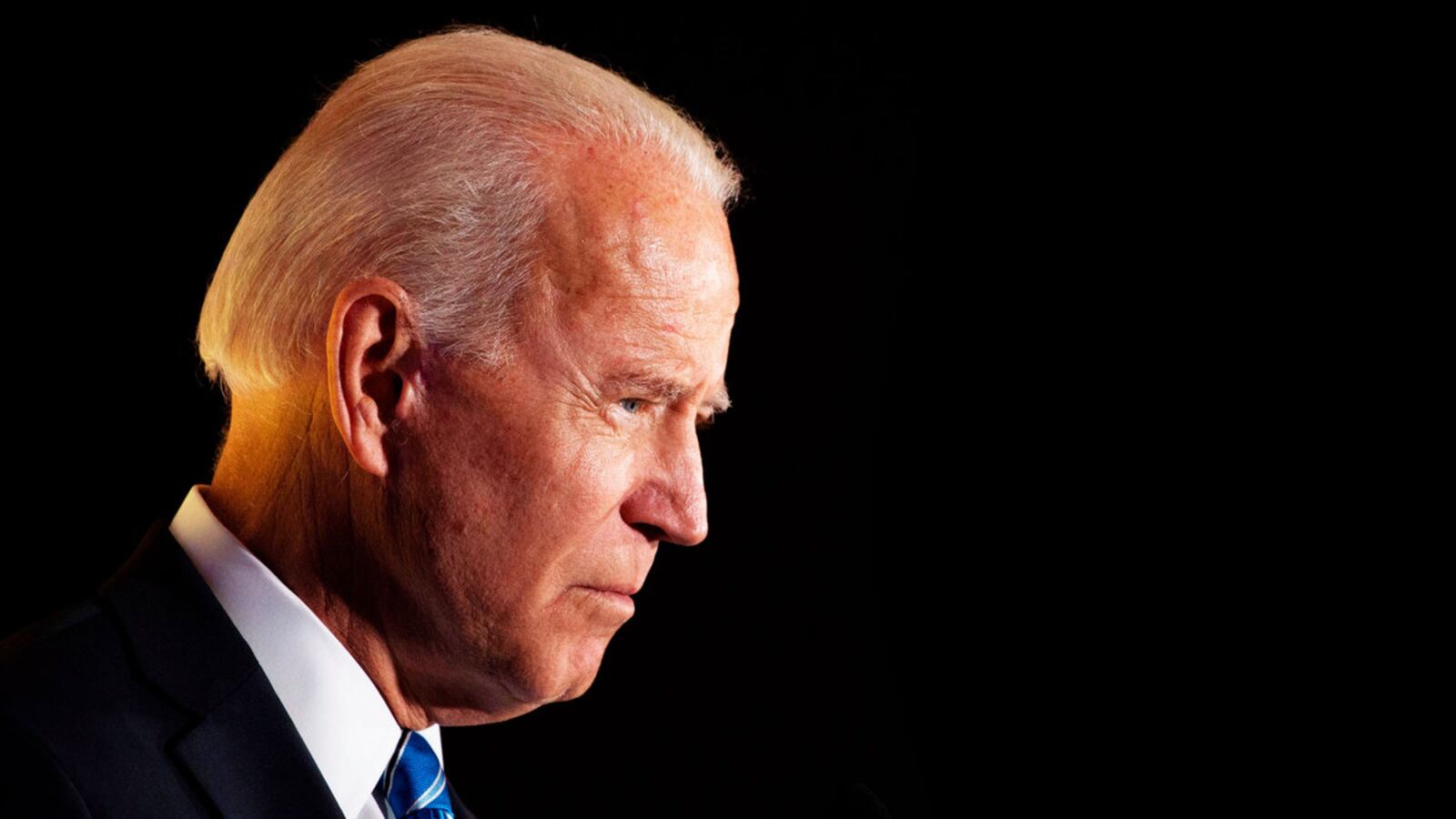As 2021 draws to a close, the U.S. has hit the tragic milestone of 800,000 COVID-19–related deaths, while Joe Biden’s approval rating hovers around 41 percent. Despite Biden’s best efforts, about as many people have now died from COVID-19 on his watch than on Donald Trump’s (there were about 400,000 deaths recorded by Trump’s last day in office).
This is not an indictment of Biden, but it does demonstrate that he fell short on his pledge to “shut down the virus” and in his premature declaration of our “independence” from it.
In many ways, this comparison is unfair to both men. Trump was less prepared than Biden, and, aside from Operation Warp Speed—a huge caveat—Trump’s irresponsible actions and rhetoric made a bad situation worse. Likewise, it’s not Biden’s fault that many Americans (often Trump fans) have refused to get vaccinated.
But weirdly, Biden’s inability to prevent this horrible milestone only reinforces the fact that it’s time for Democrats to reset and accept a new normal in the new year, where it’s acknowledged that COVID-19 is endemic. Under this new paradigm, health officials can and should keep doing their work, while the rest of us get back to our work—exercising proper precautions—but without the stultifying theater of government-imposed shutdowns and mask mandates that the Democratic Party inclines towards.
First, though, I should note that political and health-care leaders weren’t wrong to want to exercise extreme caution initially to slow the spread and prevent hospitals from being overwhelmed. Our increased knowledge, coupled with the development and distribution of vaccines, has changed things. Young people and vaccinated individuals are dramatically less likely to die from the virus. Immunocompromised Americans are still vulnerable, but for the majority of the nation protection is available if you want it.
We also have boosters and a pill from Pfizer that appears to “cut the risk of hospitalization or death by 89% if given to high-risk adults within a few days of their first symptoms.” That means the situation on the ground has changed.
(And the prospect of omicron spreading among the vaccinated, changing a “pandemic of unvaccinated” to a “pandemic of the unboosted” only points to the need to stress jabs rather than shutdowns or masks.)
And as the situation on the ground has changed so, too, has politics. One guy who seems to get this is Colorado Gov. Jared Polis, a Democrat, who recently told Colorado Public Radio, “[T]here was a time when there was no vaccine, and masks were all we had and we needed to wear them. The truth is we now have highly effective vaccines that work far better than masks.” He went on to say, “The emergency is over. You know, public health [officials] don’t get to tell people what to wear; that’s just not their job.”
Simply put, the American public is suffering from COVID fatigue. “They’re sick of masks, being told what to do in terms of vaccines, probably not thrilled with what they sense is going on in Washington, they may have lost a job or a business that went bust—or a loved one, worse yet,” New Jersey Gov. Phil Murphy, a Democrat, told Politico. Call him “Captain Obvious.”
Even blue-state governors facing primary challengers have been backing off. Yes, Gov. Kathy Hochul just implemented a new mask mandate for New York—but she admitted days later that she wouldn’t use state resources to enforce it after more than a dozen county executives said they would not follow the state’s new rule that was blasted by voters and employers trying to get workers vaccinated and back into their offices. Meanwhile, Republican governors like Ron DeSantis of Florida and Greg Abbott of Texas appear to have been vindicated, to some extent, in rejecting closures, mask mandates, and other government interventions. They have been keeping their economies going, even as their hospitalization and death rates haven’t passed those of more restrictive blue states.
Let’s be honest, wearing masks has become mostly performative. I recently dined at one of those fancy Georgetown restaurants. I’m fully vaccinated—but for the short walk from the bar (where I was maskless) to our table (where I was maskless), I had to don a mask. Waiters and bartenders, of course, kept theirs on. More often than not, the only people you see wearing masks are the help (which may be one reason why people aren’t so keen to work service jobs these days).
Aside from people in the service industry, the only other people forced to wear masks all day in many states are our children (who are sometimes even required to wear them outside at recess).
This brings us to an even more potent issue than masks: kids and schools. While hot-button issues including critical race theory and unisex bathrooms drew headlines, COVID school shutdowns probably had more influence in Glenn Youngkin’s victory in Virginia in November. There was a sense that the closures were not commensurate with the risk, and that Democratic politicians prioritized the desires and demands of teachers unions over the education (and mental health) of students and families.
There are costs to school closures—economic costs (including parents who have to stay out of the workforce) and mental health issues having to do with loneliness and isolation—that must be factored into any decision. When one considers that young people are not as susceptible to COVID-19, the decision to close schools looks even worse. Still, progressive politicians—pushed by teachers and teachers unions—adhere to a belief system that New York magazine’s Jonathan Chait calls “Zeroism.” Back in March, he defined this as “an inability to conceive of public-health measures in cost-benefit terms. The pandemic becomes an enemy that must be destroyed at all costs, and any compromise could lead to death and is therefore unacceptable.”
While I have previously criticized Republicans for accepting a sort of Darwinism that could be summed up in the words of Ivan Drago (“If he dies, he dies”), many liberals have adopted an opposite, wholly unrealistic, worldview that is harmful in its own way by always insisting on government-mandated interventions.
Life is inherently full of risks, and policy decisions require weighing pros and cons. A responsible society will attempt to mitigate risks, while balancing other important interests.
As an unpopular president presiding over a nation facing numerous other challenges, Biden had better soon adjust. This will involve acknowledging that strict COVID policies, which clearly have not achieved their goal, might also undermine other important areas, such as the economy and a more esoteric sense of hope that is greatly lacking.
In a recent piece for National Journal, columnist Josh Kraushaar offered the following advice for Biden: “The president should be channeling FDR’s call for grit paired with hopeful optimism. Continue championing vaccinations and boosters. Call on large companies to start reopening to help get the small-business economy back on track. Set benchmarks for rolling back the mask mandates in school jurisdictions where spread is fairly low. For those vaccinated and boosted, there really isn’t anything to fear but fear itself.”
If Biden and the Democrats want to survive this next year politically, they should take a note and trim their sails.


